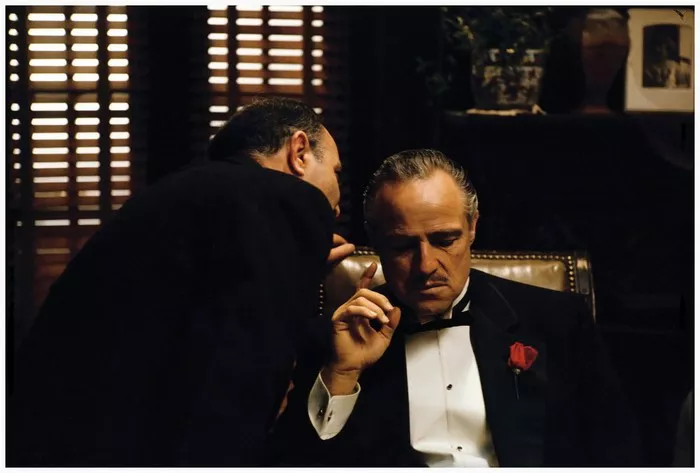The Godfather trilogy, directed by the legendary Francis Ford Coppola, has undeniably carved its place in cinematic history as one of the greatest sagas ever told. Spanning across three decades and offering an intricate narrative of the Corleone family, it’s no wonder that debates about which installment reigns supreme persist. In this exploration, we aim to dissect the nuances of each film and crown the ultimate Godfather movie. Buckle up as we embark on a journey through the crime-ridden world of the Corleones.
The Godfather (1972): A Cinematic Milestone
The inaugural chapter of the saga, The Godfather, hit the silver screen in 1972 and immediately became a cinematic landmark. Adapted from Mario Puzo’s novel, the film presents the gripping transformation of Michael Corleone (played by Al Pacino) from a reluctant outsider to a ruthless mob boss. Marlon Brando’s portrayal of Vito Corleone earned him an Oscar, adding to the movie’s accolades. The impeccable storytelling, combined with groundbreaking performances, sets the bar high for the subsequent films.
While the 1970s witnessed a surge in crime dramas, The Godfather stood out for its nuanced characters and exploration of power dynamics within the Mafia. The film’s iconic scenes, from the horse head in the bed to the “I’m gonna make him an offer he can’t refuse” line, have transcended cinema into popular culture. The Godfather (1972) not only established a blueprint for future crime epics but also remains a touchstone for quality filmmaking.
The Godfather Part II (1974): A Sequel Defying Conventions
Sequels often struggle to match the brilliance of their predecessors, but The Godfather Part II defies this trend. Released in 1974, this sequel is a rare gem that manages to surpass the original in many aspects. Coppola takes a daring leap by intertwining two timelines: Michael’s reign in the 1950s and Vito’s rise to power in the early 1900s. The dual narrative not only deepens our understanding of the Corleones but also showcases the cyclical nature of power and corruption.
Robert De Niro’s portrayal of the young Vito Corleone earned him an Academy Award, further solidifying the film’s critical acclaim. The intricate storytelling, coupled with exceptional performances, elevates The Godfather Part II to the pinnacle of cinematic excellence. It’s a rare case where a sequel not only lives up to but surpasses the original, establishing it as a formidable contender in the quest for the best Godfather movie.
The Godfather Part III (1990): A Controversial Conclusion
The final installment of the Godfather trilogy, The Godfather Part III, arrived in 1990, offering a conclusion to the epic tale of the Corleones. While the film received mixed reviews upon its release, its reputation has evolved. The narrative revolves around an aging Michael Corleone, attempting to legitimize the family business while facing the consequences of past sins.
Critics often point out Sofia Coppola’s performance as a weak link, but the film’s exploration of redemption and the cost of power adds depth to the trilogy. Al Pacino’s portrayal of Michael in his twilight years is poignant and reflective, showcasing the character’s journey from innocence to corruption. The Godfather Part III might not match the perfection of its predecessors, but it contributes a necessary layer to the saga.
Deciphering the Best Godfather Movie: A Complex Dilemma
Choosing the best Godfather movie is akin to selecting the finest jewel in a crown – each has its unique brilliance. The Godfather stands as a timeless classic, setting the stage for a saga that would captivate audiences for decades. The Godfather Part II, with its audacious dual narrative and impeccable performances, transcends the boundaries of conventional sequels. The Godfather Part III, while divisive, adds a layer of complexity and conclusion to the Corleone saga.
The decision hinges on personal preferences – some may prioritize the original’s groundbreaking impact, others the sequel’s narrative audacity, and a few the closure provided by the final installment. The debate is a testament to the trilogy’s enduring legacy, where each film contributes to the overarching narrative in its way.
Conclusion: The Enduring Legacy of The Godfather Trilogy
In the realm of cinematic masterpieces, The Godfather trilogy stands tall, a testament to the brilliance of Francis Ford Coppola and the ensemble cast. Choosing the best Godfather movie is a subjective journey, with each installment offering a unique perspective on power, family, and the consequences of choices. Whether one leans towards the classic allure of the original, the narrative complexity of the sequel, or the bittersweet conclusion of the final chapter, there’s no denying the indelible mark this trilogy has left on the world of cinema. The Godfather remains not just a trilogy but a cinematic odyssey that continues to captivate and resonate with audiences, transcending the test of time.

